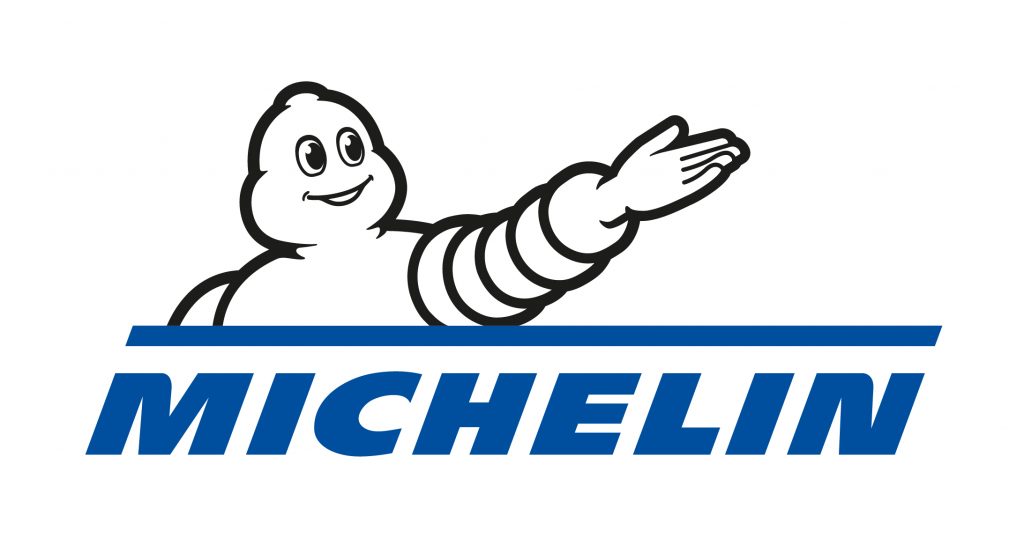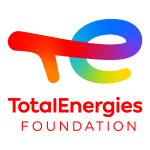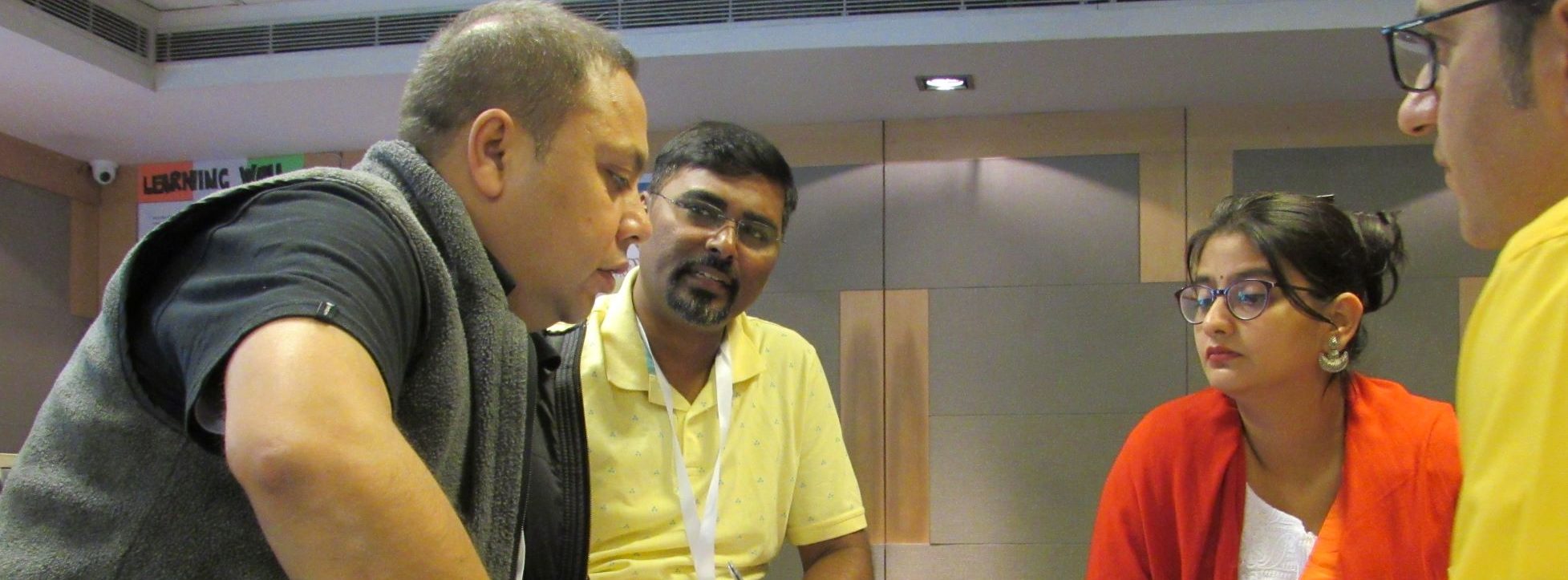
The Alliance Incubator mobilizes and strengthens NGOs’ advocacy to drive implementation of interventions that have been proven to be effective in reducing the road-related deaths and injuries that occur globally each year.
The Incubator is designed to accelerate the growth and role of serious and ambitious road safety NGOs through an array of support resources and services that could include small grants, mentoring and peer-learning.
Now in its third cycle, the 2023-2025 cohort of the Incubator welcomes 12 NGOs, spanning ten countries across Africa, Latin America, and Asia, who will advocate for evidence-based road safety policies and infrastructure changes using the Alliance Accountability Toolkit.

The Alliance issued two press releases announcing various partnerships to support the 2024 Incubator cohort.
The press release announcing partnerships with Michelin and TotalEnergies Foundation to support 12 NGOs in 10 countries to implement various evidence-based interventions in the Accountability Toolkit can be found here.
Read the press release announcing partnership with FIA Foundation to support 7 NGOs to advocate for 30 km/h zones here.
Seven NGOs will pioneer the Alliance Accountability Toolkit (Toolkit) for their Incubator programs. They will use each of the tools in the Toolkit in their advocacy for 30 km/h zones and record their experiences. This will help identify how the Toolkit can be used most effectively and rolled out more widely, as well as inputting to enhancements.
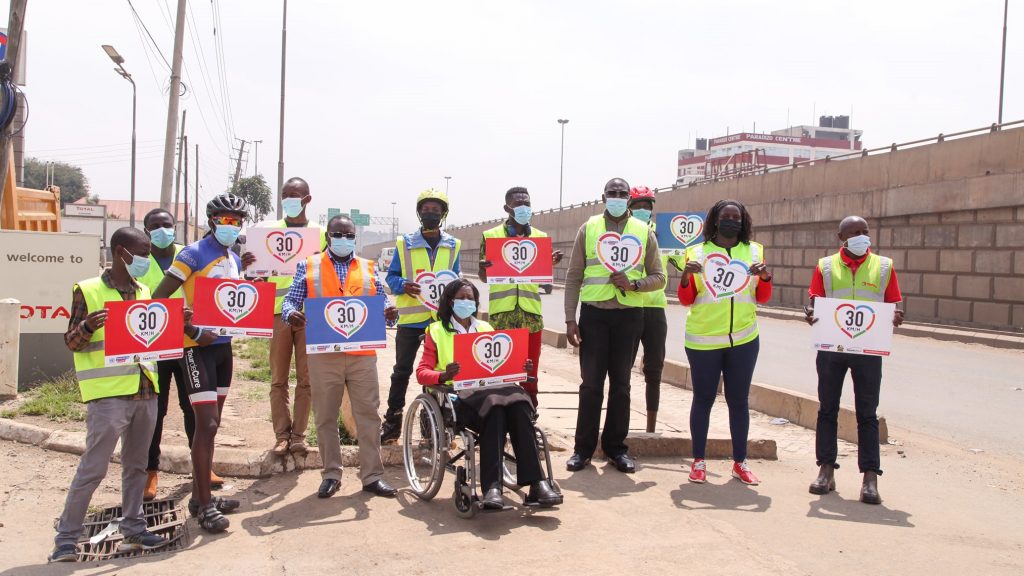
ASIRT-Kenya’s advocacy for enhanced road safety: leveraging the Traffic Act review to lower urban speed limits from 50 km/h to 30 km/h.
ASIRT-Kenya is embarking on a pivotal advocacy campaign, utilizing the Accountability Toolkit to influence the ongoing review process of the Traffic Act to ensure that it includes the implementation of 30 km/h zones on urban roads. A key aspect of their initiative is the proposal to reduce speed limits from 50km/h to 30 km/h, not only around all schools but also in areas where vehicular traffic and pedestrian movement significantly intersect. This strategy underscores ASIRT-Kenya’s commitment to establishing more secure and safer environments for the country’s most vulnerable road users, particularly in densely populated and high-traffic areas.
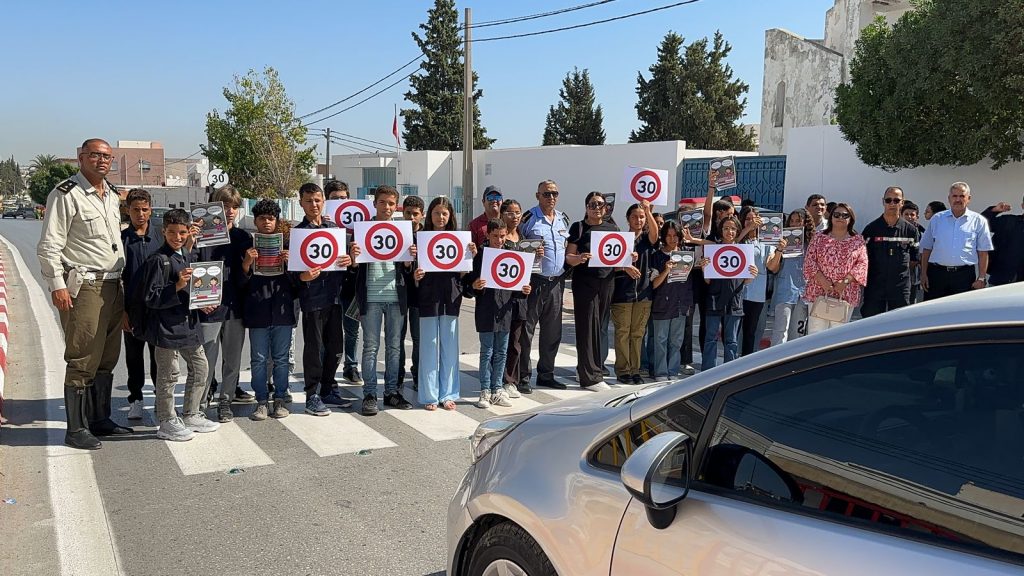
ASR-Tunisia’s continued advocacy for road safety: ensuring implementation of 30 km/h zones law.
Ambassadeurs Securite Routiere (ASR-Tunisia) has achieved a significant milestone in road safety advocacy with the successful enactment of the 30 km/h zone law in Tunisia in 2023. Building on this success, the NGO is now focusing on ensuring the practical implementation of this law. Employing the Accountability Toolkit, ASR-Tunisia is intensifying its efforts to see the government actualize the establishment of 30 km/h zones, particularly around schools and training centers. Their advocacy extends to encouraging governors and mayors to embrace and adhere to the vision of these safety zones. The NGO’s goal is to safeguard vulnerable road users by identifying target areas for the implementation, introducing necessary changes, and advocating for the application of this decree across Tunisian cities to enhance overall urban road safety.
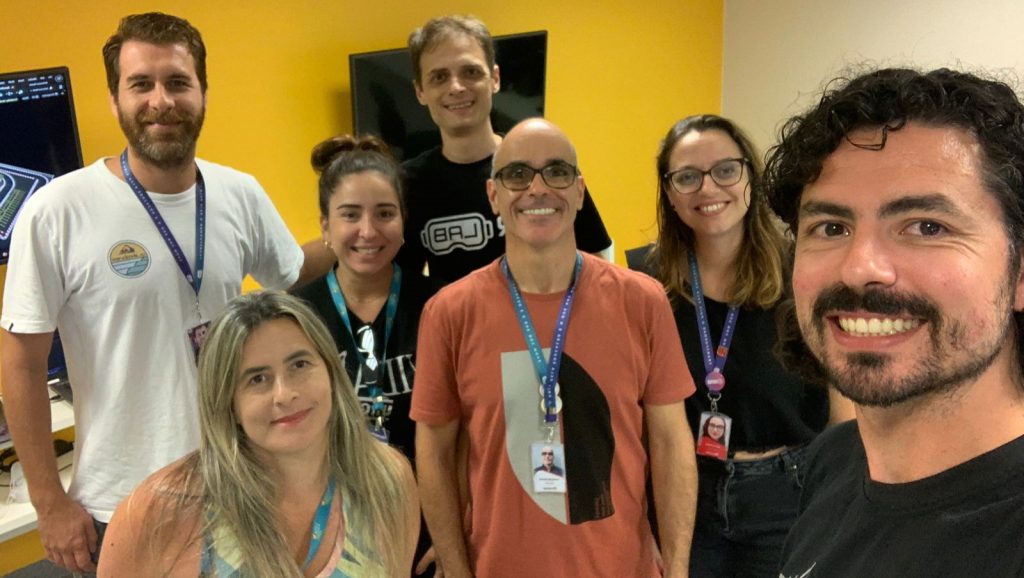
Fundação Thiago de Moraes Gonzaga’s safe zones project in Porto Alegre, Brazil: establishing a model for urban road safety.
Fundação Thiago de Moraes Gonzaga, an organization in Brazil, is launching the ‘Vida Urgente Safe Zones’ project in Porto Alegre, focusing on creating a 30 km/h safety zone between Butuí and Inhanduí streets. This initiative is driven by the need to protect numerous vulnerable road users in the area. The project aims to establish this zone as a replicable model throughout the State of Rio Grande do Sul. To ensure the implementation of the most creative and innovative solutions, Fundação Thiago de Moraes Gonzaga is partnering with a local university. This collaboration also includes incorporating feedback from local communities, ensuring the solutions are well-tailored to the specific needs and characteristics of the area.
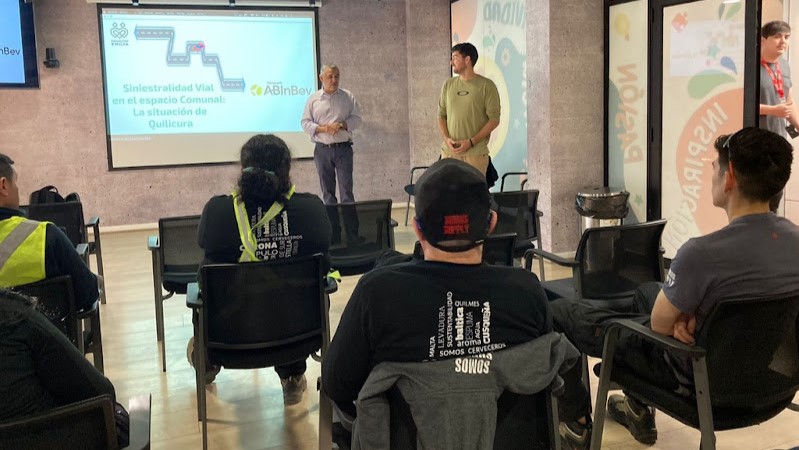
Fundación Emilia’s drive for uniform 30 km/h zones in Chile
Fundación Emilia is at the forefront of advocating for the widespread adoption of 30 km/h zones in Chile, a country where road speed limits are governed by individual municipal decrees. This decentralized approach to speed regulation presents a significant challenge for the NGO, as it seeks to promote a uniform implementation of 30 km/h zones across the nation. The variability in local laws and regulations necessitates a tailored, municipality-by-municipality strategy to effectively achieve this goal. Fundación Emilia’s campaign is pivotal in paving the way for safer roads in Chile, particularly in urban areas where lower speed limits can significantly enhance pedestrian safety and reduce traffic-related incidents.
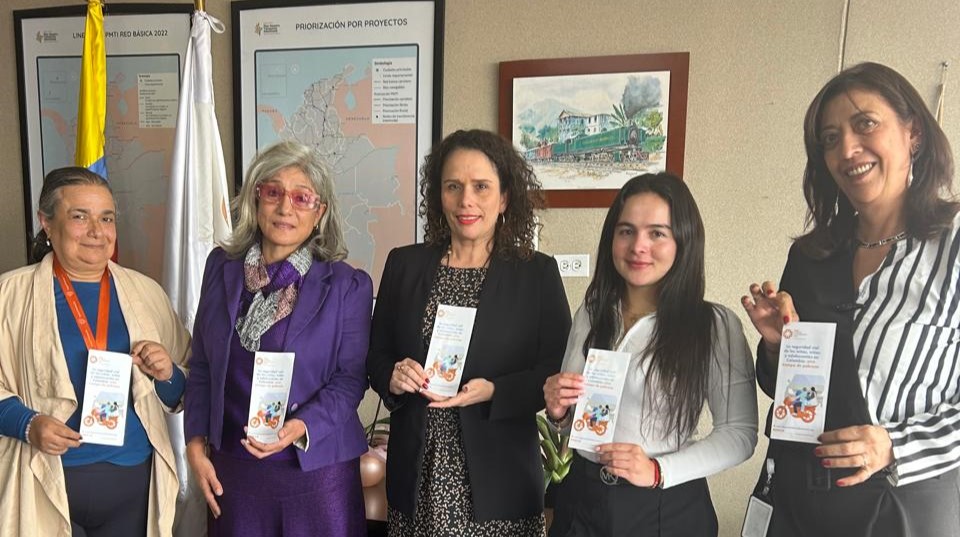
Fundación Liga Contra La Violencia Vial’s traffic calming promotion in Montería, Colombia
Fundación Liga Contra La Violencia Vial in Colombia is undertaking a pivotal initiative to enhance road safety by implementing traffic calming and speed reduction measures at a notably hazardous intersection in Montería. This intersection is characterized by high user conflict and significant risk exposure. The project aims to not only reduce traffic speeds and conflicts but also to demonstrate the cost-effectiveness of such measures. By strategically deploying these interventions, the foundation seeks to provide a replicable model of safety improvement that can be adopted in similar urban settings, thereby advocating for broader policy changes to promote safer road environments.
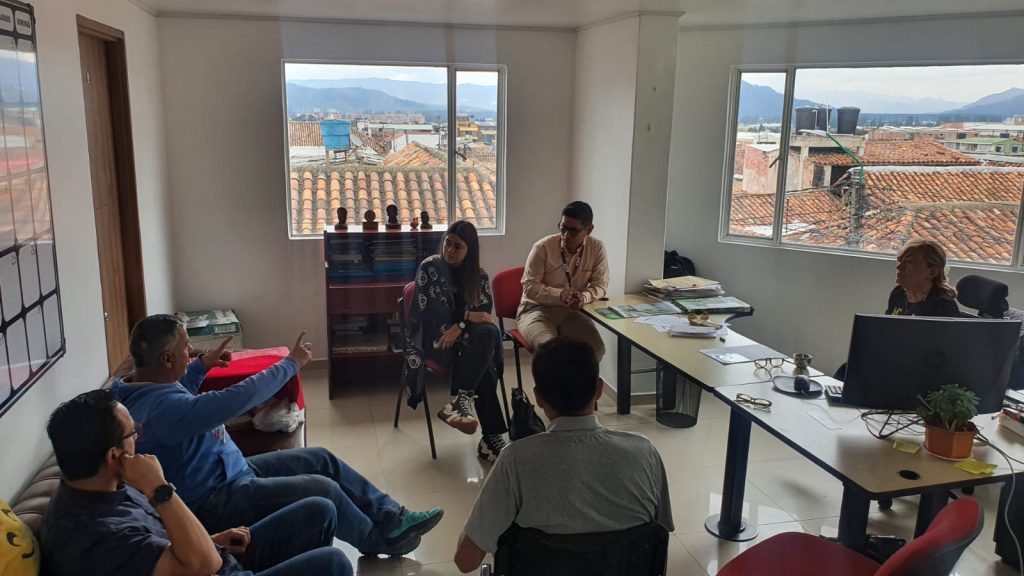
Fundación Ciudad Humana’s 30 km/h safe school zones in Colombia
Fundación Ciudad Humana, Colombia, is currently promoting safe school zones by implementing measures established by the resolution of the Transportation Ministry regarding speed limits on Colombian roads and the Law of Julián Esteban. The objective is to support a Colombian municipality near Bogotá in starting the process of implementing these measures around school zones. They are supporting the implementation of a pilot school zone where a speed limit of 30 km/h is being set, along with traffic calmers and safe pedestrian crossings. This area is serving as a pilot so that the municipality, in collaboration with Ciudad Humana, can replicate new interventions and conduct ongoing awareness campaigns with the community to reduce speed limits.
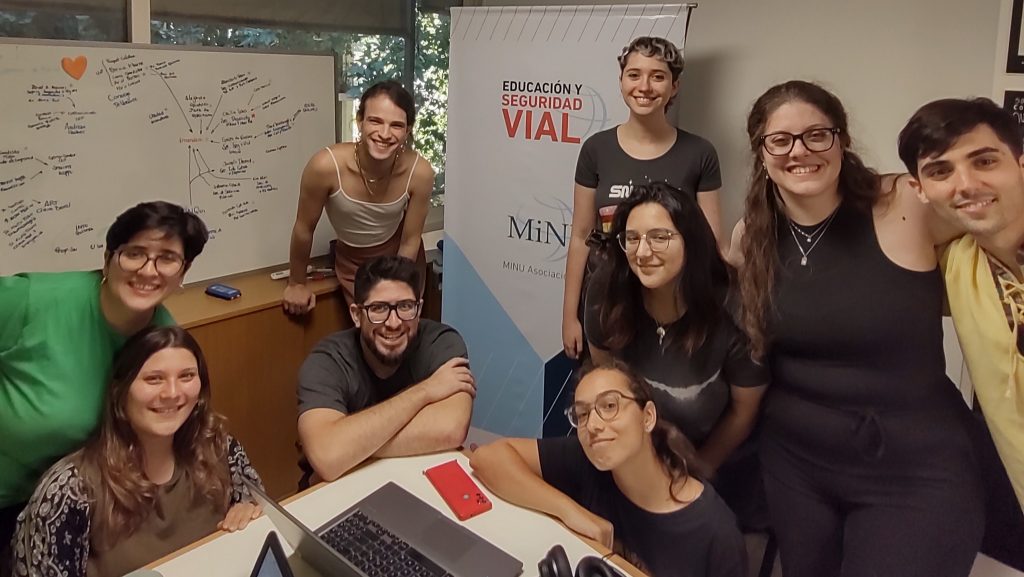
MINU’s traffic calming project at Universidad Nacional de Quilmes, Argentina for enhancing pedestrian safety.
MINU, an NGO based in Argentina, is spearheading a traffic calming project around the Universidad Nacional de Quilmes (UNQ) in the Bernal neighborhood. The primary goal of this initiative is to collaborate with the Quilmes Municipality to construct traffic calming facilities in the vicinity of UNQ to safeguard the daily pedestrian routes of the university’s students. MiNU is also using the Accountability Toolkit to advocate for implementation of 30 km/h zones in Tres de Febrero Municipality starting with Villa Bosch, the third most populous neighborhood in the Municipality.
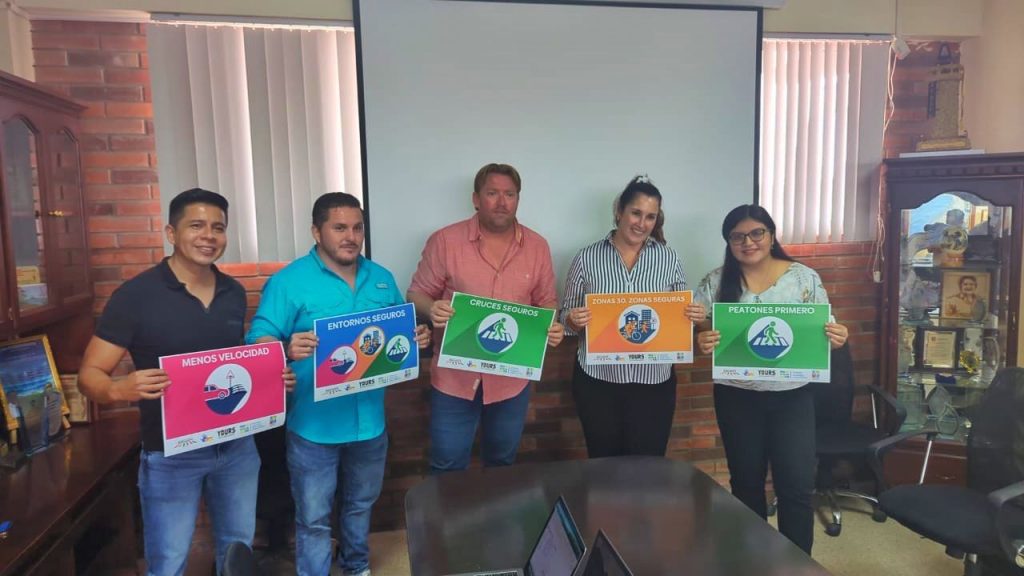
Movidana’s initiative for safer school zones in Ecuador: a pilot project for community-driven road safety.
Movidana, based in Ecuador, is pioneering a project to establish safe school zones in a local municipality. This initiative, conducted in collaboration with municipal authorities, involves a detailed analysis of a school environment using the “Star Rating for Schools” tool. The project aims to reduce speed limits to 20 km/h and improve pedestrian facilities, especially for children and persons with disabilities. A key strategy is to engage local industries in redirecting their Corporate Social Responsibility funds towards these interventions. Beginning as a pilot, the project seeks to replicate its success in other schools, fostering local technical capabilities and enhancing overall school safety.

Neuquen City traffic calming project: a joint initiative by Bien Argentino and Madres del Dolor.
In a collaborative effort, Bien Argentino and Madres del Dolor are spearheading the Neuquen City Traffic Calming Project in Argentina. This initiative focuses on supporting the most vulnerable road users – pedestrians, cyclists, and commuters – in their daily travels within the city. The project’s core strategy involves the implementation of traffic calming measures to create a safer, more secure urban environment for these groups. This approach aims to reduce the risks associated with urban transportation and enhance overall road safety in Neuquen City.
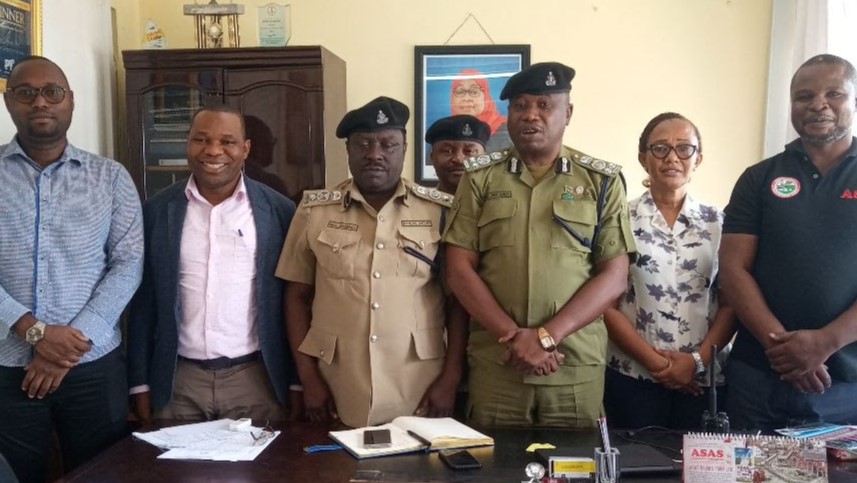
RSA Tanzania’s role in advancing Tanzania’s Road Safety Action Plan: advocating for urban 30 km/h zones.
Road Safety Ambassadors (RSA-Tanzania) is at the forefront of promoting Tanzania’s new road safety action plan, a testament to the country’s dedication to enhancing road safety through evidence-based methods. NGO advocacy, including efforts by RSA-Tanzania, has been instrumental in integrating the concept of 30 km/h zones in urban public spaces into the plan. This inclusion is particularly focused on prioritizing the safety of pedestrians and other vulnerable road users. RSA-Tanzania is actively engaged in advocating for the adoption and execution of the National action plan. Utilizing the Accountability Toolkit, the organization is vigorously pushing for the implementation of the 30 km/h zones on urban roads, as outlined in the plan, to ensure a safer and more secure urban environment for all road users.
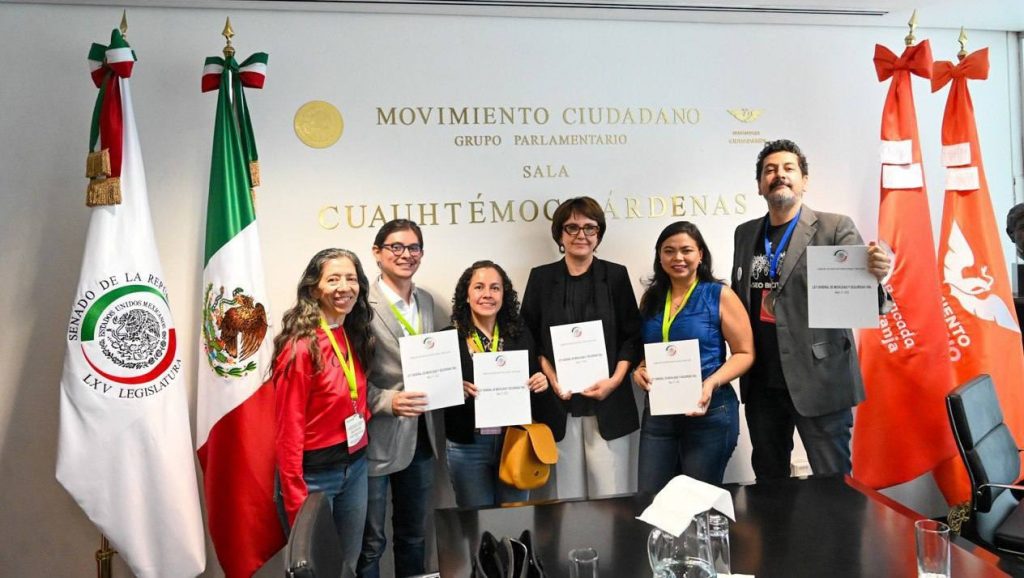
Proyecto Céntrico’s comprehensive motorcycle safety advocacy in Mexico: a collaborative approach for legislative reform.
Proyecto Céntrico in Mexico is undertaking a significant advocacy strategy focused on motorcycle safety. This initiative aims to build a coalition of support encompassing national and local governments, civil society, the private sector, and academia. The goal is to drive a reform process of the General Law of Mobility and Road Safety, along with other pertinent national laws, to include comprehensive regulations for the safe use of motorcycles. Through a series of facilitated workshops, Proyecto Céntrico plans to pinpoint regulatory enhancements, identifying specific problems and proposing solutions based on evidence and sector expertise. The ultimate objective is to secure robust support for the passage of a road safety bill that addresses critical aspects of motorcycle use, such as speed management, road design, enforcement, and the mandatory use of certified helmets, among other vital considerations.
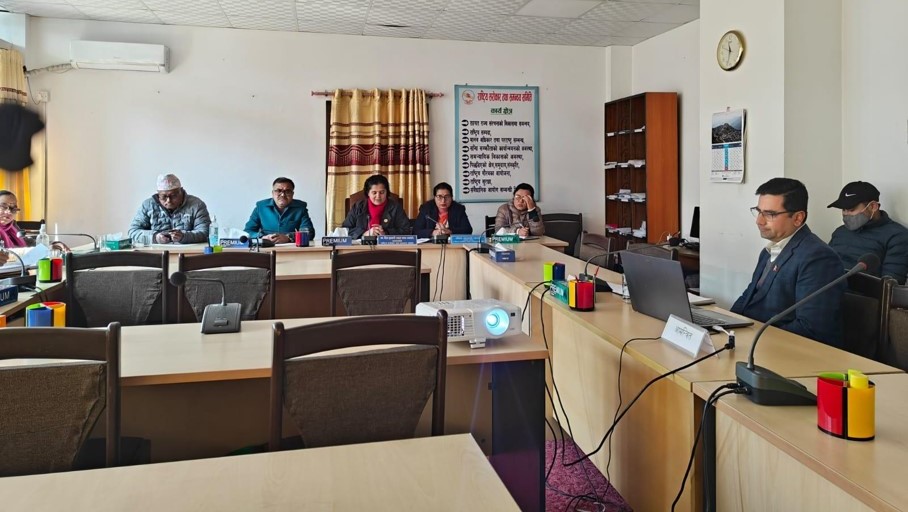
Swatantrata Abhiyan Nepal’s campaign for safer roads in urban Nepal: advocating for 30 km/h speed limits.
Swatantrata Abhiyan Nepal (SAN) is dedicated to promoting safer road infrastructure across urban cities in Nepal. Their key focus includes advocating for the implementation of a 30 km/h speed limit in densely populated areas. SAN’s efforts extend to reviewing and updating legislation and local design standards to reflect the diverse needs of all road users, considering the specific functions of different zones. Currently, SAN is employing the Accountability Toolkit in its targeted advocacy efforts with Tokha Municipality and Budhanilkantha municipality . The NGO’s primary goal is to secure the adoption of a 30 km/h speed policy in key areas such as markets, schools, hospitals, and religious sites, ensuring a safer environment for the community in these critical zones.
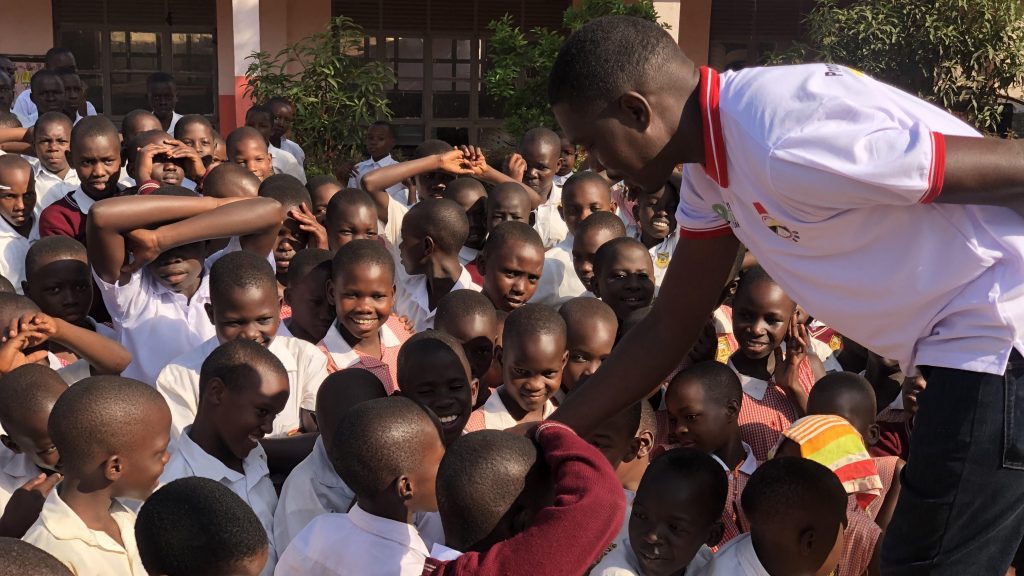
URRENO’s advocacy for enhanced school zone safety in Uganda
URRENO, in collaboration with its peer NGO HOVITA, has been actively involved in advocating for the revision of Uganda’s Traffic and Road Safety Speed Limit Regulation (2004). Their concerted efforts have been instrumental in proposing the inclusion of a 30 km/h speed limit specifically for areas surrounding schools. This advocacy has led to the successful integration of the safe school zone concept into the existing policy framework. Currently, URRENO is leveraging the Accountability Toolkit to further advocate for the creation and strengthening of speed limit regulations. This includes ensuring effective enforcement and raising public awareness about the importance of adhering to these speed limits, especially in school zones, to ensure the safety and protection of young, vulnerable road users in Uganda.
The objective of the Alliance Incubator is to support NGOs to advocate with the government to deliver effective and efficient road safety interventions that lead to halving the number of deaths and serious injuries by 2030.
Successful candidates in the Alliance Incubator program are ambitious and serious and take responsibility for their program of work.
Successful candidates set targets for their advocacy with their governments with tangible outcomes during the Incubator program period. The Alliance provides support that could include small grants, mentoring and peer-learning opportunities to fast-track advocacy milestones.
A good incubator plan should demonstrate how the NGO will utilize Alliance resources including the Alliance Accountability Toolkit and ideally integrate your work program with both local and global moments such as the Alliance #CommittoAct campaigns, UN Global Road Safety Week in a way that they strengthen your advocacy.
Incubator grants will be available against a justified budget and delivery of agreed outputs and outcomes.

